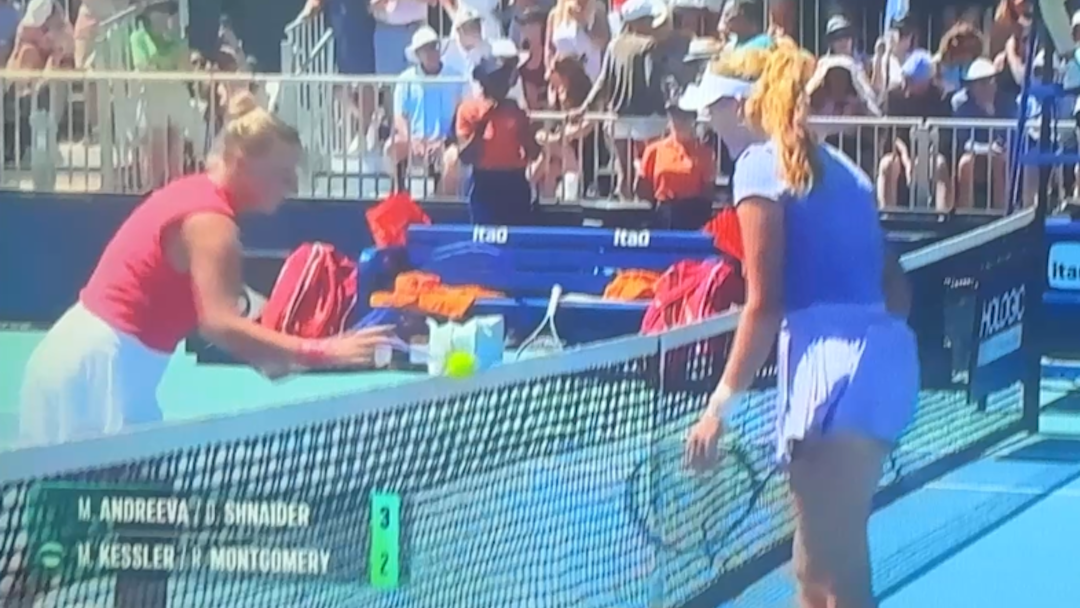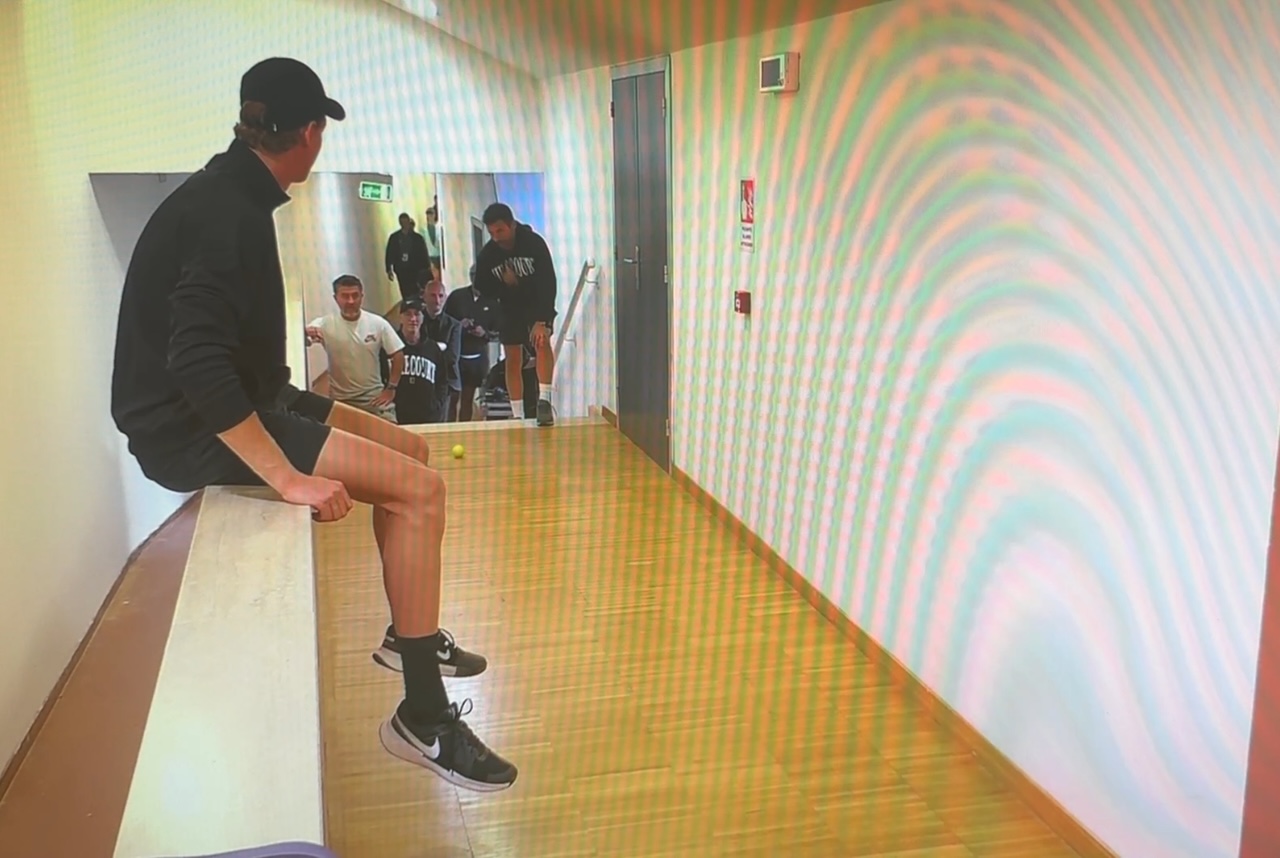After writing about bad line calls in tennis last weekend, the most common response I received was questions about how I really react to close calls. As I alluded to last Sunday, while emotional detachment is the best response, it can be a challenge to achieve. Moreover, I believe no close call on the other side of the net should be allowed to pass without some expression of doubt. Otherwise, my opponent may interpret the absence of protest as validation. I want to at least plant the seed in my opponent’s mind that they might have missed the call. That might encourage them to be a little more generous on the next one.
At the same time, I don’t want to create a scene, because no one needs unnecessary drama. Unless I perceive a call as egregious, my usual move is to walk slowly toward the net, staring pointedly at the place where the ball bounced. If possible. I then try to make eye contact with my opponent and shrug. I believe an opponent who was confident in the call assumes no offense when I take that closer look. Every once in a while, following that silent journey to the net, I will have an opponent loudly protest that the ball was way out. That is tantamount to a confession that it wasn’t. In either case, I rarely say a word.
You will never hear me utter “Are you sure?” To the uninitiated, that question sounds innocuous enough on the surface. However, it is a loaded phrase laced with accusation about the call while simultaneously revealing that the person who said it is an insufferable twit. (Twit was not the original word in my first draft) By definition in The Code, if a player isn’t sure the ball was out, then the “out” call cannot be made. Only a fool would answer that challenge with something other than a positive affirmation. “Are you sure?” will never result in a changed call, but it still creates drama and sets the stage for more bad calls to come on both sides of the net.
Doubles introduces an additional layer of complexity. As a matter of principle and partnership, it is best practice to uphold your partner’s line calls. If my partner makes a call, and my opponents question it, I will side with my partner every time. Nothing erodes team chemistry faster than publicly second-guessing your own side. However, if my partner discreetly asks for my opinion, I will likely be honest.
In the end, I want to avoid unnecessary drama, but I am also not going to be a pushover. The sweet spot is learning to respond to close calls with quiet conviction. You don’t have to cause a scene to make your opinion known. It’s not about changing the current call, but rather about creating an atmosphere where more questionable calls are less likely to occur as the match unfolds. At least, that’s the hope.



